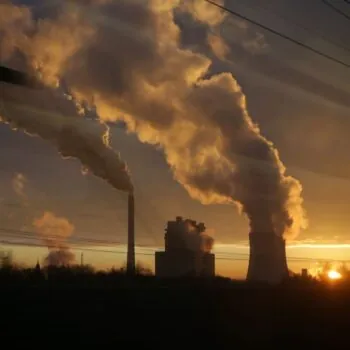Coal won’t formally be on the agenda of COP23 in Bonn. It’s up to countries to decide how to implement their emissions cuts, so coal won’t be specifically on the agenda in technical negotiations.
But around the margins of the World Conference Centre, coal will be a hot topic, which is appropriate given that the surrounding region of Westphalia was known as 'the Land von Kohle und Stahl'. Indeed, Germany’s domestic emissions reductions progress has stalled and its ongoing reliance on coal is a major contributing factor.

Ahead of Germany’s elections in September, coal was largely kept off the political agenda for most of 2017, but is now roaring back to political prominence as negotiations around the coalition agreement get underway.
Pressure is growing on Angela Merkel to justify her ‘Climate Chancellor’ reputation and include a coal phase out process as part of the coalition agreement.
Beyond the confines of the conference centre, there will be numerous campaign activities on the opening weekend demonstrating the weight of public opinion against coal.
Central to this will be the Europe Beyond Coal campaign, launched today, which brings together civil society organisations from 28 countries across Europe.
E3G is proud to be a member of the campaign and will continue to support the public interest case for accelerated action by governments and industry alike.
A new role for Coal Diplomacy
Visible international progress by other countries and regions will be helpful to the new German Government as they grapple with the biggest coal challenge in Europe. During the course of 2017, E3G has been supporting this effort by encouraging leading countries to accelerate international action on coal phase out.
In the last two months there has been positive progress towards this goal. The UK and Canada have announced that they will cooperate to lead a global alliance on the transition away from coal, calling on other countries to join them in launching this at the COP.
A wider group of progressive players (including the likes of Finland, Portugal, Berlin and Alberta) are all potential partners that can support this emerging alliance. More broadly, our recent analysis shows that other OECD countries are coming to the same position on coal and adding to the momentum.
Indeed, Germany is under increasing peer pressure from its near neighbours: the European Parliament has called on all UNFCCC parties to take action on coal phase out while the recent summit between French President Emmanuel Macron and Italian Prime Minister Paulo Gentiloni announced that these two countries would work with other Member States on the energy transition, in particular, moving away from coal.
France has already committed to end its dependence on coal by 2022 and called on all international finance institutions to stop funding the installation of coal based energy production in its recent Plan Climat. In Italy too, momentum is building. Following the Government’s recent consultation on the National Energy Strategy, Italy has announced its intention to phase out coal by 2025 – meaning that four members of the G7 are now committed to coal phase out.
Significantly, the incoming Dutch Government has stated in its coalition agreement that its coal plants would be shut by 2030 or before, including three of the most recent coal plants in Europe – a salient warning to international investors looking at a final push on new coal plant investment.
E3G's Coal Team at COP23
At the COP, E3G will host a session on international progress on coal phase out. The event will take place in the UK Pavilion from 10:00-11:30 on the 8th of November, and will share insights on the steps being taken by the UK, Canada, Alberta and others to shift away from dirty coal to clean energy. Do join us!
Perhaps as a last word on what can be achieved, it is worth mentioning the nearby city of Essen has this year been named by the EU as its European Green City, a city once known as the Graue Maus (grey mouse) after its once dominant coal industries.
Together, the aim must be to help more cities and regions transition from coal to clean. The new German Government will have to grasp the nettle of how best it can enable this structural shift and assist its lignite regions to leave their reliance on coal behind.
Germany has shown before how it can drive major change in its energy system: the next two weeks at COP will ensure that the incoming government will be aware of both the peer pressure to act and the diplomatic support on offer.


